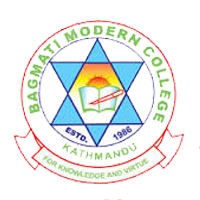Overview
Bachelor of Business Studies (BBS) at East-Pole International College, Jorpati, Kathmandu
Bachelor of Business Studies (BBS) at East-Pole International College, Jorpati, Kathmandu follows the Tribhuvan University (TU) scheme for undergraduate management studies. Students focus on accounting, finance, marketing, economics, business law, and management across a structured four-year plan. The program suits learners who aim for roles in banking, corporate administration, entrepreneurship, public service, and further study in MBA/MBM or related fields.
The college runs steady classroom routines, practice sets, and report writing. You work through core papers set by TU while building habits that matter in offices: accuracy, punctual submission, and clarity in communication.

Highlights
-
Affiliation: Tribhuvan University (TU)
-
Duration: Four academic years (as per TU calendar)
-
Location: Jorpati, Gokarneshwor-05, Kathmandu
-
Focus Areas: Accounting, finance, marketing, economics, business law, research/report writing
-
Learning Support: Class tests, presentation practice, spreadsheet labs, library access
Curriculum Details
BBS follows TU’s framework. Exact paper codes and yearly sequencing follow TU’s latest handbook. A typical structure includes:
-
Management Foundations: Principles of management, organizational behavior, and business communication.
-
Accounting Suite: Financial accounting, cost and management accounting, auditing basics, and statements analysis.
-
Finance Basics: Financial management, working capital ideas, time-value of money exercises, and capital budgeting methods.
-
Economics Core: Micro and macro concepts, market structures, national income, monetary and fiscal policy.
-
Marketing Groundwork: Consumer behavior concepts, product and pricing decisions, distribution, and promotion planning.
-
Business Law and Tax Exposure: Contracts, company forms, negotiable instruments, and introductory taxation as per TU scope.
-
Quantitative & IT Tools: Business mathematics, statistics, and spreadsheet-based problem solving for accounting and finance.
-
Report/Project Component: Guided report writing that develops literature scanning, data tables, references, and clear conclusions.
Students keep organized notebooks, prepare short case notes, and submit reports that mirror common workplace formats: title page, objective, method, analysis, and recommendation.
Objectives
-
Build foundational knowledge across accounting, finance, marketing, and economics.
-
Develop numerical accuracy and clean documentation habits that match office standards.
-
Strengthen communication through presentations, memos, and short reports.
-
Prepare students for competitive exams and postgraduate entries through steady practice.
Scope
-
Further Study: MBA/MBM, MBS, economics, and professional certifications (as per respective councils).
-
Sector Mobility: Banking, insurance, trading, manufacturing, NGOs/INGOs, local government units, and small business setups.
-
Geographic Options: BBS from TU is recognized across Nepal; graduates apply for roles nationwide and pursue international study subject to equivalence.
Learning Outcomes
On completion, students should be able to:
-
Prepare and interpret basic financial statements and cost summaries.
-
Apply financial management tools to budget decisions and appraisal tasks.
-
Draft business documents—letters, minutes, proposals, and short reports—with a clear structure.
-
Use spreadsheets for ledgers, ratio analysis, and working papers.
-
Present findings in concise slides and answer practical questions.
Skill Development Modules
-
Accounting Practice Packs: Journal, ledger, trial balance, reconciliation, year-end adjustments, and cash-flow statements.
-
Spreadsheet Clinics: Formulas, pivots, charts, and error checks for accounting and sales data.
-
Presentation Labs: Slide structure, speaker notes, and time control.
-
Communication Drills: Email tone, subject lines, summaries, and meeting minutes.
-
Quantitative Routines: Time-bound sets for math and statistics to build speed and accuracy.
Teaching Methodology
-
Concept Classes: Short lectures followed by guided exercises.
-
Workshops: Spreadsheet and document formatting sessions linked to course tasks.
-
Assessments: Unit tests, mid-term checks, and pre-boards to mirror university patterns.
-
Project Guidance: Topic selection, outline, referencing, and draft reviews.
-
Mentoring: Study plans near exams, doubt-clearing hours, and feedback on writing.
Admission Requirements
-
Eligibility: 10+2 or equivalent from a recognized board with TU-specified minimum division/CGPA for BBS entry.
-
Documents: Application form, recent photos, academic transcripts, character certificate, migration certificate (if applicable), and ID copies.
-
Process: Form submission, document verification, and internal screening or interview if scheduled.
-
Advisory: Students from science and humanities streams may apply if they meet TU criteria.
Career Opportunities
-
Banking and Finance: Teller/assistant roles, credit/back-office support, and operations after further training.
-
Accounting and Audit Support: Vouchers, ledgers, reconciliations, inventory records, and audit assistance under supervision.
-
Sales and Marketing: Data collation, client coordination, and reporting for local firms.
-
Administration: Office coordination, procurement support, and documentation in schools, hospitals, and municipalities.
-
Public Service Prep: Base knowledge useful for administrative posts subject to national recruitment rules.
Scholarships and Financial Aid
-
Merit Support: Based on board results or internal tests as per college policy.
-
Need-Sensitive Aid: Considered on documentation and committee review.
-
Renewal Conditions: Attendance, discipline, and standing in internal/external exams.
Why Choose This Course?
-
TU-recognized structure that links clearly to banking, accounting, and public service tracks.
-
Hands-on practice in accounting and spreadsheet work common in offices.
-
Report writing and presentations that build confidence for interviews and group tasks.
-
Steady mentoring during assessments and project stages.
Conclusion
BBS at East-Pole International College offers a clear, TU-framed path into management studies. Students learn accounting, finance, and business communication through regular classes, practice sets, and project work. Graduates step toward entry-level roles or postgraduate study, supported by organized notes, spreadsheet fluency, and clean writing habits.
FAQ
1) Can non-management +2 graduates apply for BBS?
Yes, if they meet TU’s BBS entry criteria and provide complete documents.
2) How much accounting is included?
Accounting runs across multiple years: financial, cost/management accounting, and statements analysis.
3) Is a project or report mandatory?
TU requires structured report work. The college provides guidance on topic selection, data tables, and referencing.
4) What software do students practice?
Spreadsheets and standard office tools for accounting sheets, charts, and reports.
5) Does BBS help for banking jobs?
It builds the base for entry-level roles; banks may add their own tests and training. Further study strengthens prospects.



















